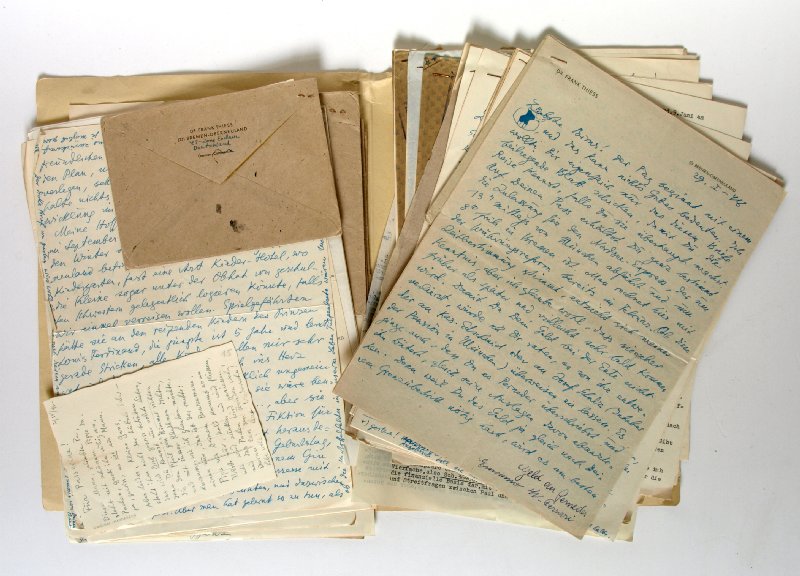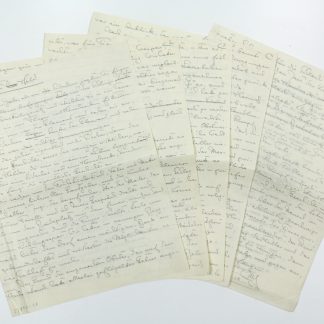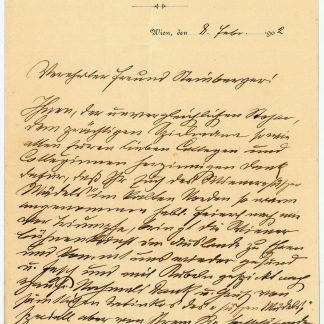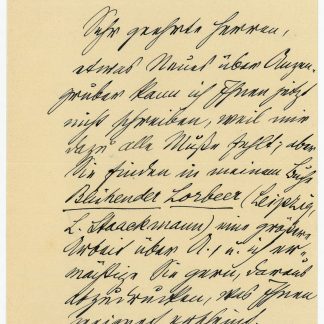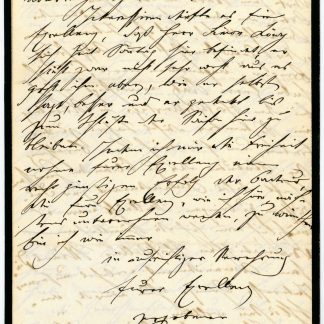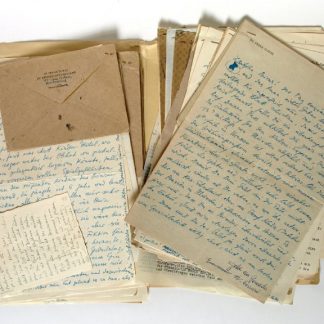500 unpublished letters by the author of 'The Voyage of Forgotten Men'
Collection of 480 autogr. letters and postcards and 2 telegrams to Yvonne Thiess (1446 pp.) and 18 autogr. and ts. letters and carbon copies to other persons (40 pp.). Includes 44 autogr. and ts. letters by various writers to Frank Thiess (100 pp.) and 54 autogr. and ts. letters and postcards to Yvonne and Irene Thiess (81 pp.).
€ 65,000.00
"There never was a time when Frank Thiess was not controversial", the celebration publication in honour of the writer's 60th birthday states (Frank Thiess. Werk und Dichter, p. 30). Before the National Socialists seized power in 1933, the writer had enjoyed great success with his historical novels, and his literary importance was largely undisputed. His novel "Tsushima" (1937), translated as "The Voyage of Forgotten Men", was printed in several hundred thousand copies; Hemingway even included Thiess in his 1942 anthology "Men at War". After the War, Thiess coined the term "Inner Emigration" to describe the situation of artists who, as he did, remained in Germany during the Nazi years without personally agreeing with German politics of the time. Thiess argued that this attitude was superior to that of emigrants proper such as Thomas Mann, who supposedly had watched the destruction of Germany from "balcony seats". Although most of Thiess's works were seized by the Nazis and some were even burned publicly, his decision to remain in Germany and his bitter feud with Mann proved great obstacles when he tried to regain his old position in German literature after the War.
The present partial Nachlass, from the estate of his second wife, Yvonne Thiess, sheds light on his role during the last years of Nazi Germany and the postwar years until 1965. In these roughly 500 letters and postcards to his wife, 22 years his junior, he reflects extensively upon his life and work. While he has apparently resigned himself during the War years to being unable to provide for his family, he is baffled by the problems he encounters after the War, complaining of unfair treatment, feuds with other writers, and the difficulties in joining the literary scene of postwar Germany.
Detailed list available upon request.
Frank Thiess. Werk und Dichter. Ed. by R. Italiaander (Hamburg, 1950). Cf. E. Hemingway, Men at War: The Best War Stories of all Times (New York, 1942). Y. Wolf, Frank Thiess und der Nationalsozialismus. Ein konservativer Revolutionär als Dissident (Tübingen, 2003).

